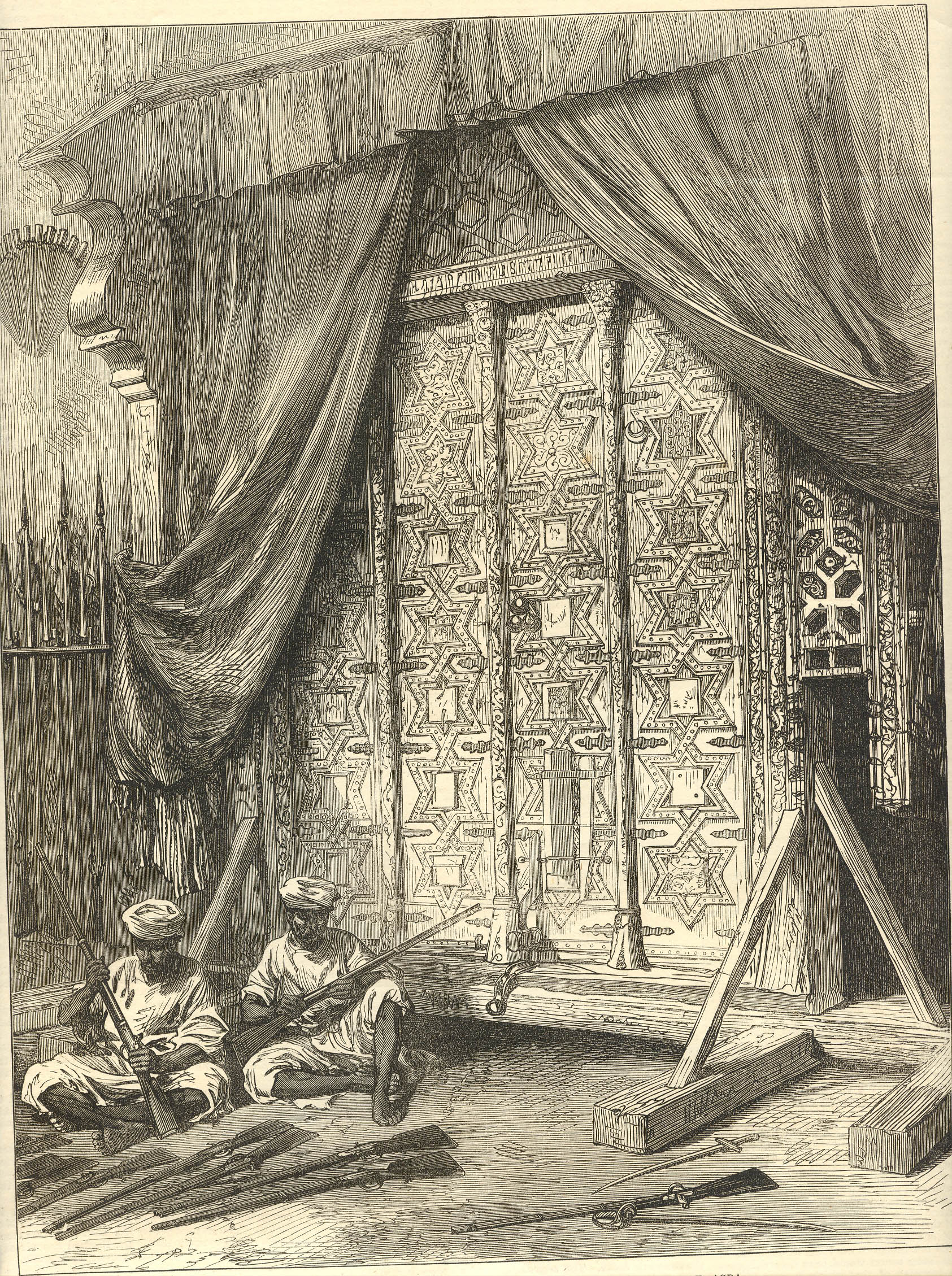Gates of Somnauth
The Gates of Somnauth are significant geographically in both The Moonstone and British colonial history. Indeed, the gates itself reflect the entrance to the Somnauth temple which has more significance considering it is likely the site where the Moonstone was stolen, but the gates still radiate a sense of mystery. In The Moonstone, the sacred city of Somnauth is only briefly mentioned—described primarily as a sacked city wrought by despair—but the gates stand out as an object of optimism. Little is known about the history of the gates, but they remained a sacred figure in British and Indian history, so much so that in 1842, Edward Law, the 1st Earl of Ellenborough, ordered the British Army to bring sandalwood gates of Mahmud of Ghazni's tomb—initially believed to be the gates of Sonmauth Temple. Upon arrival in India, however, they were found to be of a different material than the supposed gates.
Britain’s fascination continued in 1843, where Vernon Smith of Southampton gave a famous speech in the House of Commons speaking up against the restoration of the gates. The “fake” gates have been stored in a room at Agra Fort ever since 1842, but the whereabouts of the real Gates of Somnauth remain a mystery. While this marks a boring end to what proved to be an engrossing point in the colonial history of India, the gates still remain a tourist attraction to those who are able to make it to Agra Fort.

Works Cited:
“The Supposed Gates of Somnauth, in the Arsenal of the Fort at Agra.” Illustrated London News, 1872. http://www.columbia.edu/itc/mealac/pritchett/00routesdata/1000_1099/ghaznavids/somnath/somnath.html
Rattray, James. “Mosque and Tomb of the Emperor Soolta Mahmood of Ghuznee.” British Library, https://www.bl.uk/onlinegallery/onlineex/apac/other/019xzz000000562u00010000.html. Accessed 26 Sept. 2021.
Smith, Vernon. “The Gates of Somnauth.” 9 Mar. 1843. http://www.columbia.edu/itc/mealac/pritchett/00generallinks/macaulay/txt_commons_somnauth_1843.html
Parent Map
Coordinates
Longitude: 70.401156900000
